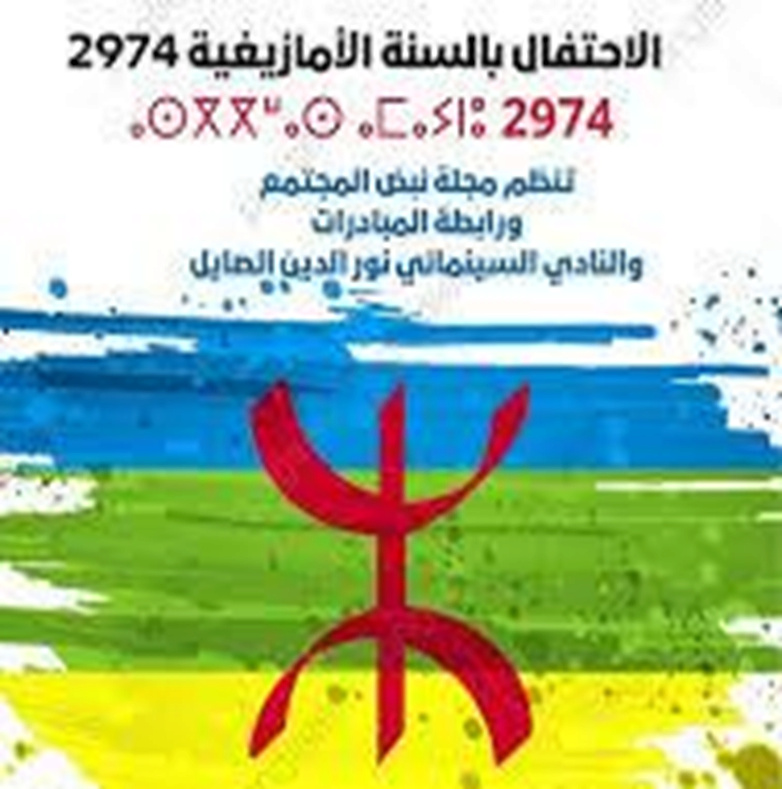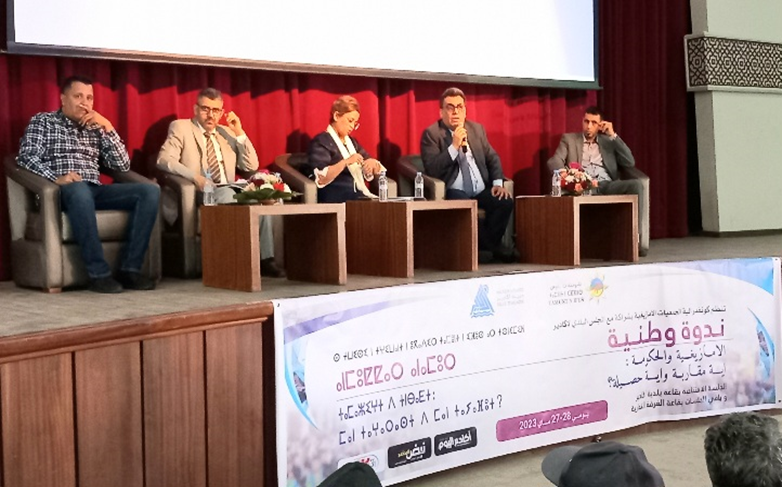Idris Al-Kanbouri And The Amazigh Language: A Discussion Out Of Context

Professor Idris Al-Kanbouri published on his official page a lecture that he called “Amazigh extremism and the coming devastation,” without explaining to the listener the context and reasons for his lecture, nor the reasons for raising the topic at this particular time. Especially since the lecture seems to those familiar with this discussion to be out of the general context of the Amazigh language in Morocco (and North Africa in general), after the gains it achieved at the beginning of the twenty-first century after the royal speeches on the subject since 2001, then the constitutional recognition of Amazigh as an official language in the 2011 Constitution and the beginning of activating the requirements This new situation occurred after the approval of its regulatory law in 2019. Therefore, Professor Al-Kanbouri appears in the way he presents and discusses the topic, and even in the issues discussed, as if he came out of a private meeting in which someone provoked him regarding the Amazigh language, and without realizing it, he rushed out to dedicate a “lecture” to him in his official capacity. And made it a general discussion, without any knowledge or knowledge of the developments taking place.
This explains the inconsistency of the professor’s ideas and the absence of a precise topic, which made him immerse himself in generalities and throwing accusations right and left without referring even once to a specific book to support his accusations, or a statement by a well-known figure to justify his position. Indeed, Professor Al-Kanbouri, the researcher, insists on using the word “Berber” as an opposition to the royal speeches that settled the issue and established the designation of the Amazigh language in the name of the “Royal Institute for Amazigh Culture” and in the Kingdom’s constitution, which used both in its preamble and in Chapter Five the designation of the Amazigh language, and also as an opposition to all... Developments in the academic scientific discourse on the subject resulted in the establishment of departments and masters for Amazigh studies in Moroccan universities since 2006.
Every response to the content of Professor Al-Kanbouri’s intervention is in fact a return to the discussion to the first years of the emergence of Amazigh demands, and a re-presentation of the same old questions and issues that were settled a long time ago, such as the Amazigh and Islam, which is sufficient for Professor Al-Kanbouri to expand his knowledge on the subject by reviewing the book of the late Professor Abdel Salam Yassin, “A Dialogue with... An Amazigh friend,” or the book by Professor Mohamed Shafik in French, “What Does the Muezzin Say?”, and also a book by the late Professor Ali Sedqi Azaykou entitled “Amazigh and Islam,” then a book by Professor Ahmed Assid on “Amazighism and Political Islam.”

Viewing these publications will discuss the ideas of the Amazigh movement based on the opinions and positions of some of its pioneers. I say some because it is not possible scientifically and methodologically to collect all the opinions of actors in the Amazigh language in one basket and under the label “advocates of the Amazigh language,” which Professor Al-Kanbouri insists on using without evidence. As for the issue of customs and the debate raised by the Amazigh movement, Professor Al-Kanbouri can bother to read, even for the sake of reference, the research of the late Professor Muhammad Al-Othmani, “The Tablets of Jazula”, then the writings of the late Professor Al-Hussein Al-Maliki, and also the book of Professor Ahmed Arhmoush entitled “The Values of Justice in the Laws.” “The Amazigh Position,” all of which are studies that demonstrated the important intellectual contribution of the Amazigh in the field of legislation and drafting of laws, a contribution from which today we can derive what is in line with our reality and the constraints of our time, as happened in the Family Code of 2004, one of whose texts regarding the sharing of acquired funds was inspired by the “Tamazalet” custom known as hard work. And the quest...
As for the relationship of the Amazighs to Arabic and considering their mastery of Arabic as evidence that they are Arabs based on “whoever speaks Arabic is an Arab,” this is not appropriate for a researcher professor who has a scientific and critical sense. If that were the case, everyone who spoke French would be French, and everyone who spoke English would be English. Instead of using other hadiths as evidence, such as “There is no superiority for an Arab over a non-Arab except through piety,” or the saying of Ali bin Abi Talib, “Learn tongues, for every tongue is a human being,” or the Quranic verse in Surah Al-Rum, “And among His signs is the creation of the heavens and the earth, and the differences in your tongues and colors,” which are all religious texts. With a humanitarian content that respects multilingualism and cultural diversity, Professor Al-Kanbouri preferred to present Islam as if it were a religion that seeks to Arabize people and eliminate their languages. Islam is innocent of this, and this in itself is a type of ethno-linguistic extremism wrapped in religion. As for his talk about the history of “racial” and “ethnic” conflicts, his words are correct, but he must also add to it “religious conflicts,” and how religion contributes to fueling the conflict. There are many examples of this, ancient and modern. It can also add conflicts between countries and how the slogan “defending the homeland” can lead to bloodshed wars. When interests conflict and there is no dialogue and acceptance of the other, the circumstances and causes of the conflict are present, and it does not matter on what basis this conflict arose.
Professor Al-Kanbouri’s allusion to the danger of conflict and reducing it to “nationalisms” without mentioning Arab nationalism, and the role of religion in that, alluding to the discussion of the Amazigh language, is an abnormal method and reflects bad faith in his dealings with the Amazigh debate in Morocco. If the “extremism” that the professor spoke about is rejected, then it must be rejected at all levels and under any umbrella. Then, Professor Al-Kanbouri can understand that those who raised the issue of the Amazigh language since the sixties of the last century were motivated by the rejection of the types of extremism that were prevalent at the time, and whose victims were Moroccan citizens because of their Amazigh language, the result of which was their exclusion, in one way or another, whether materially or morally.

Therefore, presenting the Amazigh demands and responding to them today is an absorption of the conditions that lead to extremism of any kind, and it is also a strengthening of national identity with all its components, as stipulated in the 2011 Constitution. It is also a step towards achieving the state of right and law, and building a modern democratic society, as Malak indicated. The country. This is what Professor Al-Kanbouri had to present in his intervention in order to contribute positively to the current debate about activating the official nature of the Amazigh language, which is the level that Morocco has reached with a lot of maturity and reason, instead of raising scarecrows that only exist in its imagination, and inventing stories that are not based on any basis. As for talking unscientifically about the absence of followers among Amazigh advocates, it is a discourse that does not seek the legitimacy and justice of Amazigh demands, but only believes in the presence of followers in the form of a herd who are incited by irrational rhetoric to achieve other goals, even if they are not legitimate, and from here the coming extremism and danger are born. . Do you understand...!
Source : websites

